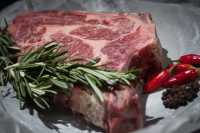MedicalResearch.com Interview with:
Professor Chris Seal and
Professor Carlo Leifert
Nafferton Ecological Farming Group (NEFG),School of Agriculture, Food and Rural Development, Newcastle University
Nafferton Farm, Stocksfield, Northumberland UK
Medical Research: What is the background for this study?
Response: In 2009 an FSA-sponsored study by Dangour et al. was published and concluded that there are no composition differences between organic and conventional crops and animal (meat and dairy) products. This contradicted the results of literature reviews, field experiments and retail surveys that many of the scientists involved in the EU-FP7 project QualityLowInputFoods (
www.qlif.org/) had carried out or were in the process of completing in 2009.
We therefore decided to put together an international team of scientists and carry out a larger, updated systematic literature reviews and meta-analyses to determine whether or not the Dangour et al (2009) study was justified in drawing the conclusions they had. This took 5 years to complete. We reported on crops in 2014 (
http://research.ncl.ac.uk/nefg/QOF/crops/) and the studies published now report the results on meat (
http://research.ncl.ac.uk/nefg/QOF/meat/) and milk/dairy products (
http://research.ncl.ac.uk/nefg/QOF/dairy/).
Medical Research: What are the main findings?
Response:
- both organic milk and meat contain around 50% more beneficial omega-3 fatty acids than conventionally produced products
- organic meat had slightly lower concentrations of two saturated fats (myristic and palmitic acid) that are linked to an increased risk of cardiovascular disease
- organic milk contains 40% more conjugated linoleic acid (CLA)
- organic milk contains slightly higher concentrations of iron, Vitamin E and some carotenoids
- conventional milk contained around 70% more of the essential mineral iodine and slightly more selenium
We feel the most important results in terms of nutrition is that both organic milk and meat contain around 50% more beneficial omega-3 fatty acids than conventionally produced products. Omega-3s are linked to reductions in cardiovascular disease, improved neurological development and function, and better immune function. Organic milk had 57% higher concentrations of the nutritionally most desirable, very long chain (VLC) omega-3 fatty acids eicosapentaenic acid (EPA), docosapentaenoic acid (DPA) and docosahexaenoic acid (DHA). Fatty acid profiles in milk are known to change very little during processing in to high fat dairy products such as butter and cheese. Omega-3s are linked to reductions in cardiovascular disease, improved neurological development and better immune function. The European Food safety Authority (EFSA) estimates that average dietary intakes of VLC omega-3 fatty acids account for less than half of what we need for optium health.
The finding of substantially higher concentrations of iodine in conventional milk is also important information, especially for UK consumers, where iodized table salt is not widely available and dairy products are an important source of this nutrient
. However, it should be pointed out that the Organic Milk Marketing Co-operative (OmsCo) has recently increased iodine fortification of organic dairy feeds and reports that levels of iodine in organic milk are now similar to those found in conventional milk (
www.omsco.co.uk/_clientfiles/pdfs/omsco-iodine-levels.pdf).
(more…)













